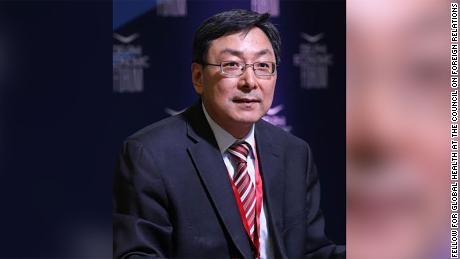Yanzhong Huangis a Senior Fellow of Global Health in the Council on Foreign Relations and a professor at the Seton Hall University School. Council on Foreign Relations specializing in Asia. He is the author of "Toxic Politics: China's Environmental Crisis and Challenges to the Chinese State". The views expressed here are his own. Read moreOpinionson CNN.
(CNN)For those disappointed with China's zero corona policy, Beijing's Communist leader Cai Qi said this week and the city's policy for the next five years. Maintain ""


Cai Qi's original report did not seem to contain the phrase, and government censors immediately removed the misleading citation, but the big news backlash caused by social media was China's zero. It raises the question of whether we are serious about pursuing. Covid as a long-term strategy (let's call it "Long Zero-Covid"). If so, how feasible it is-and what does it mean for China and the world?
As Chinese government officials have repeatedly said, the Dynamic Zero Corona Strategy does not require absolute zero infection. Instead, it focuses on breaking the local transmission chain and controlling the situation in the shortest possible time after a local relapse or outbreak is detected.
However, with the advent and worldwide spread of new subvariants that can evade immunity caused by vaccination and previous infections, the victory over the virus under zero corona is short-lived.
Continuing to face the threat of a virus attacking China justifies applying the strategy until the end of the pandemic (which is not immediately visible).
Nonetheless, top state media and government epidemiologists have emphasized the dangers of this variant, and the worst-case scenario (characterized by mass mortality and the collapse of the hospital system) is: It still defines an official description of the potential. The result of pivoting away from the Zero Corona policy.
Similarly, China is moving to routine pandemic measures through regular PCR tests and rigorous health checks in residential and public areas. The ability to stop Covid-19 infections in Shanghai and Beijing is the best decision maker to have sufficient resilience and wisdom to keep the virus away, no matter how expensive and difficult the Chinese state may be. Brings the trust of.
Other developments also facilitate the pursuit of a long zero-corona policy. Despite growing social dissatisfaction in big cities such as Shanghai and Beijing, public support for this policy appears to remain strong in small cities and rural areas (with very limited access to alternative information). is.
Many Chinese have zero corona because of the unhealthy consequences of infection (eg, subject to stigma and strict quarantine and quarantine), as well as the promised health benefits. I do not oppose. ..
Over time, the marginal cost of implementing a strategy is the accessibility to test facilities, the sharp drop in the cost of conducting high-volume tests, and the high-tech tools and social forces in monitoring. Larger dependencies can make it more acceptable. People's movements and internalization of the Zero Corona policy in Chinese society.
However, the impact of the long Zero-COVID policy on socio-political, economic and foreign policy can be far more serious and lasting than the government thinks.
And as misunderstandings and distrust between China and the West grow, the collapse of the bamboo curtain is no longer a distant reality.


